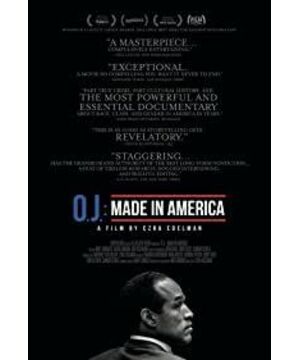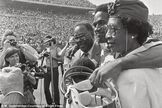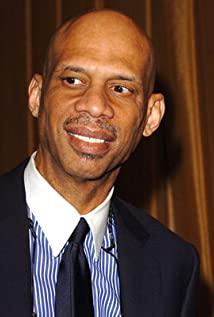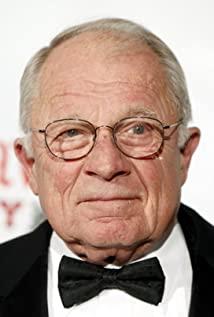The wonderful thing about this series of documentaries is that the protagonist's own story is very dramatic, and more importantly, it tightly binds the social background that is closely related to the protagonist's various life stages. The play tells the legendary life of an American legend. It can also be said that it reveals the development history of the American racial struggle in the second half of the 20th century through a person's life. OJ's life can never be repeated, as if the god of luck was driving along with him, succeeding again and again and escaping the judgment of sin again and again. OJ is an extremely egoistic and controlling person who has always played the role of a smart guy who seeks benefits and avoids disadvantages, he built a reputation in his youth and spent the rest of his life upholding the reputation of those two letters. He was a man who yearned for love, so he restrained himself and turned himself into a fleshless man of steel, so he was angry and destroyed all signs of being unloved. With such a legendary life, OJ may feel very satisfied, but we can see from his eyes that he is not a happy person. We will be surprised that the stories that take place in reality can have such unexpected tension, spanning half a century of stories, many seemingly insignificant little things can develop huge energy, it is a grand butterfly effect. The inhumane treatment of blacks by whites broke out in a wrongful case decades later. OJ became a target of exploitation, only because of his fame and his skin color, he was saved by his own skin color, but Decades ago, he made it clear countless times that he didn't want to be kidnapped by the color of his skin. The black community sees OJ's acquittal as a revolutionary victory, and they don't care whether it's true or not. For decades, the city has been shrouded in a dark cloud of racial antagonism. Because of its existence, the devil of "humanity" will appear like lightning and destroy a forest at will. And maybe without the devil, there would be no dark clouds. Creation and Research This drama tells the story in chronological order. In the early stage, OJ's personal experience and the social background of the local ethnic struggle were cross-edited. In the later stage, the OJ trial began to tell the clues and combined them into one, and finally revealed the huge correlation between them. , has profound social significance. This drama is divided into 5 episodes, and the node of each episode is the turning point of OJ's life development. The whole film constructs characters and stories through real video materials, the form and content of interviews, and some textual expressions, and makes full use of music to render emotions and advance the plot, so that the audience can know OJ from various aspects and fully understand the period. The phenomenon and underlying reasons for the development of racial struggle in the United States. There are many people interviewed, almost including It includes all the important figures who have witnessed every stage of OJ's life, even if they were once in a relationship of opposing interests, as well as journalists who have witnessed history, and those who have had distinct significance in the racial struggle. This helps to reflect the authenticity, objectivity and comprehensiveness of the play. During the trial of OJ in the third and fourth episodes, the plot was compact, the rhythm was fast, and the plot was ups and downs. Although such twists and turns are inherent in the story itself, without the creator's detailed research and arrangement of things, it is impossible to Re-enact this heart-wrenching history.
View more about O.J.: Made in America reviews











